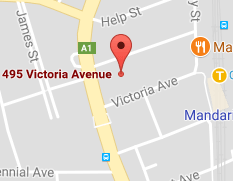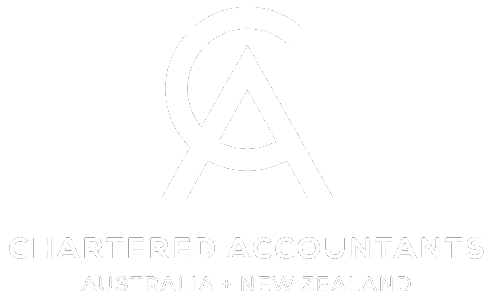Click here to download or view a PDF version of the following StewartBrown Newsletter - 2024 Land Tax edition.
WELCOME
Welcome to the Land Tax edition of our client newsletter for 2024 where we hope to keep you informed of the important Land Tax compliance issues affecting owners of land in Australia. You may recall that Land Tax is a State tax and different rules apply in each State. In this newsletter we have summarised the position in NSW. If in any doubt about your particular Land Tax circumstances, please contact your StewartBrown Manager or Partner.
NSW LAND TAX REMINDER – ACTION REQUIRED BY 31 MARCH 2024
Land Tax 2024 – Registration Form
All landowners in NSW, including Individuals, Companies, Superannuation Funds and Trusts are reminded that the due date for lodgement of the initial return for land held as at 31 December 2023 is 31 March 2024. If you have previously registered for Land Tax you do not need to complete a variation form unless your ownership or usage details have changed and you haven’t already received a correct 2024 assessment.
If you own a property other than your principal residence and you have not previously registered with Revenue NSW, or if you need to lodge a variation form, please contact us as soon as possible. Penalties and interest may be levied for late registration and payment of land tax.
Land Tax applies to:
- vacant land, including vacant rural land
- land where a house, residential unit or flat has been built
- a holiday home
- investment properties
- company title units
- residential, commercial or industrial units, including car spaces
- commercial properties, including factories, shops and warehouses
- Land leased from State or Local Government
Land Tax is an annual, asset-based tax. It is irrelevant whether you are receiving income from the land or not.
Land Tax rates 2024
The Land Tax rate for 2024 is 1.6% (plus $100) on the combined value of all taxable land in excess of the threshold. The 2024 Land Tax threshold is $1,075,000 for all taxpayers except discretionary trusts, some unit (fixed) trusts and certain groups of companies where the threshold is nil.
Where the taxable value of land held in NSW is more than $6,571,000 (known as the “Premium Threshold”) the Land Tax payable is $88,036 for the first $6,571,000 in land value, then 2% over that amount.
Revenue NSW obtains property values from the NSW Valuer General, who values land in NSW on 1 July each year. The unimproved value of a taxable property is the value used as the taxable value of the land for Land Tax valuation purposes. The taxable value of each parcel of land is determined on the average value from the current year and the two past years, where applicable. When a parcel of land has been created less than three years ago – for example, through a subdivision or amalgamation – only the years after it was created are taken into account.
If you disagree with the valuation assessed to your land, you may object to the land valuation used in your Land Tax assessment, but that objection must be lodged in writing within 60 days of receiving your notice of assessment.
Land Tax exemptions potentially apply to:
- principal place of residence (except if the property is rented or is used for business purposes)
- the former principal place of residence of some deceased persons (subject to limitations)
- land used for primary production
- boarding houses
- low cost accommodation
- residential parks (including caravan parks)
- non-profit organisations
- retirement villages, aged care establishments and nursing homes
- child care centres
- crown or council land
Paying your Land Tax
Once you receive your land tax assessment notice you have the option to pay the assessment using one of the following methods:
- Pay the full tax amount upfront or
- Pay by an interest free payment plan over 3, 6 or 9 months by fortnightly or monthly instalments.
If you wish to use the payment plan option, please ensure you apply well before the due date for tax payable (stated on your assessment notice).
Should you have any queries regarding your Land Tax Assessment Notice or need any assistance in applying for a payment plan, please do not hesitate to contact us.
LAND TAX FOREIGN OWNER SURCHARGE
If you are a foreign person who owns residential land in NSW, you must pay a Land Tax Foreign Owner Surcharge (“LTFOS”) of 4% of the value of the land. This is in addition to the 1.6% Land Tax amount.
The LTFOS is only payable by foreign persons owning land in NSW. It applies to all properties owned by foreign persons including their principal place of residence. Importantly there is no tax-free threshold applicable to the LTFOS. A foreign person can be:
- an individual
- a corporation
- a trustee of a trust
- a beneficiary of a land tax fixed trust
- a government
- a government investor
- a partner in a limited partnership
An individual, who is not an Australian citizen, is a foreign person if they are not ordinarily a resident in Australia. Australian citizens are not foreign persons, no matter where they reside.
Due to international tax agreements entered into by the Federal Government, you will not have to pay LTFOS if you are a citizen of New Zealand, South Africa, Germany, Finland, Japan, Norway, India or Switzerland.
If you are a foreign person and own land in NSW you must inform Revenue NSW. It may well be that you are liable for the LTFOS but not land tax (for example if your NSW land value falls below the threshold for land tax assessment purposes).
Certain visa holders (Permanent, Partner (provisional) and Retirement) will be exempt from LTFOS on their principal place of residence if they use or intend to use and occupy their home for a continuous period of 200 days in a land tax year. These visa holders need to apply for the exemption from LTFOS by 31 March in the relevant tax year.
Similar surcharges exist in other States although the rules can be quite different between States. Please consult with your StewartBrown Manager or Partner if you need further assistance with land tax or the land tax foreign owner surcharge.
LANDHOLDER DUTY
Landholder Duty is applied when someone acquires a ‘significant interest’ in a company or unit trust that owns real property in NSW with an unencumbered value of $2 million or more.
The NSW Government has recently announced a raft of changes to the landholder duty regime set to take effect from 1 February, 2024. The cornerstone of these changes is the reduction of the threshold for the acquisition of a ‘significant interest’ in a private unit trust from 50% to 20%.
This change means that taxpayers who hold 20% or more of the units in a private unit trust may need to pay duty on their acquisition of the units, potentially adding significant unexpected costs to the transaction.
This will also mean that a large number of companies and unit trusts will become ‘landholders’ for NSW landholder duty purposes for the first time. For further advice or information concerning these proposed changes please contact your StewartBrown Manager or Partner.



